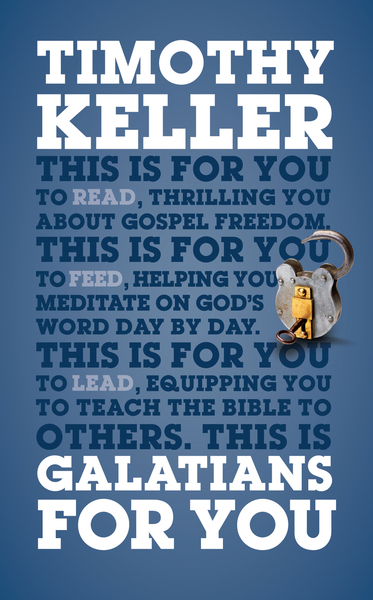
If you've got a smartphone, you'll have seen the game. Even if you haven't, you may well have helped a friend. So we thought we'd do one with a biblical twist ...
If you can guess the word (hinted at by the pictures, and made up of 8 of the letters listed below), type it in the comments field. We'll delay posting the comments for a few hours so others get to play along ...
You never know, there might even be a prize for the first person to answer!
How do you serve Jesus? And (more importantly) why do you serve Jesus… and how do you feel about serving Jesus?
If you’re anything like me, serving can be a bit of a burden—just one more job in an already busy life. I often feel weary or discouraged about it. Or, when it’s going well, I feel proud and self-reliant about it.
Most of the time, it’s just the price that has to be paid to get eternity.
John Hindley, whose new book Serving Without Sinking has just launched, puts it this way:
“We Christians often seem to be a burdened, joyless bunch. It should not be like this, and it doesn’t need to be—for me or for you.”... continue reading

Here are ten helpful lines from Tim Keller’s new expository guide, Galatians For You:
1. “If you say people are saved by being good, then only ‘the good’ can come into God’s feast. The gospel offer becomes exclusive, not inclusive.”
2. “The gospel gives us a pair of spectacles through which we can review our own lives and see God preparing us and shaping us, even through our own failures and sins, to become vessels of His grace in the world.”
3. “God does not love us because we are serviceable; He loves us simply because He loves us. This is the only kind of love we can ever be secure in, of course, since it is the only kind of love we cannot possibly lose.”
4. “Christ will do everything for you, or nothing. You cannot combine merit and grace. If justification is by the law in any way, Christ’s death is meaningless in history and meaningless to you personally.”
5. “Salvation means much more than forgiveness. We do not simply have our slate wiped clean; we also become perfect in God’s sight. And we stay perfect in God’s sight. We go on as we began, having our hearts melted and molded by knowing and trusting Christ crucified.”
6. “’God sent the Spirit’ as well as ‘God sent his Son’. The Son’s purpose was to secure for us the legal status of our sonship. The Spirit’s purpose is to secure the actual experience of it.”
7. “For a child of God, there is confidence and boldness every day. We don’t walk in fear of anyone or anything; our Father owns the place! We live with heads held high.”
8. “The gospel devours the very motivation you have for sin. It completely saps your very need and reason to live any way you want. Anyone who insists that the gospel encourages us to sin has simply not understood it yet, nor begun to feel its power.”
9. “The main problem in our heart is not so much desires for bad things, but our over-desires for good things. When a good thing becomes our ‘god’, it creates ‘over-desires’ that drive and control us.”
10. “We are saved by faith, not by growing fruit; but we are not saved by fruitless faith. A person saved by faith will be a person in whom the fruit of the Spirit grows.”
Until the end of next month, if you buy a copy of Galatians For You, we’ll give you a free copy of the accompanying group Bible-study Guide, Gospel Matters: The Good Book Guide to Galatians. You can also download Dr Keller’s personal study notes on Galatians through the Explore app.
How do we change and grow as Christians? In the same way we became Christians. That's why in Galatians 3 v 1-3, Paul reminds the Galatian Christians how it was that they came to Christ. And in essence, “Jesus Christ was clearly portrayed as crucified” (v 1). This portrayal was achieved through preaching, through “what you heard” (v 2, 5). Paul isn’t referring to a literal picture, but a metaphorical one.
There was a message communicated—“Jesus Christ … crucified” (see 1 Corinthians 2 v 1-5). Notice that the essence of this message is not how to live, but what Jesus has done for us on the cross. The gospel is an announcement of historical events before it is instructions on how to live. It is the proclamation of what has been done for us before it is a direction of what we must do.... continue reading
Timothy Keller talks about his new resource, Galatians For You and why the book of Galatians is a wonderful book to read reflectively, feed from, and lead others through.
Take one divinely-inspired book of Scripture—Galatians, say—and one of this age’s most insightful, thoughtful and contemporary Bible teachers—Tim Keller, say—and one Christian who wants their mind and heart to be increasingly engaged and stirred by the gospel—you, say.
What do you have? Galatians For You, the first in a series of expositional guides to books of the Bible, which launches today.
Who exactly is it for? Well, though it sounds like a cliché, it is FOR YOU. Whoever you are, and whatever stage of your Christian walk you’re at, from seeker to seminary student.
You can simply read it, like a normal book, chapter by chapter, working your way through Galatians. Used this way, you’re reading a book which totally allows Scripture to set the agenda; it’s not topic-based, or a thematic look at a Bible book. It simply looks at what Paul said, and why he said it, in the order that he said it, and unpacks how it’s liberating and life-changing for us today.... continue reading
My friends are hurting. I’m guessing yours are too. There seems to be a never-ending stream of people sharing their struggles. In the last few months alone I’ve had phonecalls about suicide attempts, unplanned pregnancies, lost jobs, broken relationships, spiraling debt, childhood abuse and post-traumatic stress syndrome (to name just a few).
It’s a privilege to stand alongside people in tough times. Any Christian with a heart of compassion will want to support those who struggle. All of us, I’m sure, know the importance of prayer. And I imagine most of us are confident in the transformational work that can take place when people turn to Jesus as the great counselor and sovereign Lord. But, if you’re anything like me, there are moments when you feel ill-equipped. What can (or should) be said to someone in the depths of despair? What can we do to point people to Jesus in the tough times?... continue reading
Today on The Good Book Blog, Carl Laferton speaks to Mike McKinley about his new book, Passion.
Passion is a book about the last day of Jesus' life, leading up to the cross. There are A LOT of books about the cross! Why is this one different?
Well, Passion certainly doesn't break any startling new ground. I think that's probably a good thing! But there are three features of the book's approach that I hope make it particularly helpful: First, it’s expositional. The book is rooted in the text of Luke. I hope that by the time the reader is finished with the book, they have a fresh grasp of the what the Scriptures tell us about the suffering of our Lord. Second, it’s applicational (if that’s a word!). The writers of the New Testament saw the cross of Christ (alongside his resurrection) as one of the foundational realities of the Christian life. The cross applies to our lives right now; we are meant to live and love and believe in light of what Jesus did for us there. Third, it’s slow.There is a lot of action packed into Luke's account of that day. My goal in Passion was to slow down and look carefully at all of those events and what they mean to us.... continue reading
And here, to whet your appetite, is an extract from Mike McKinley's brand new book, Passion.
Barabbas is famous for being the man who was set free instead of Jesus. We only know a few things about him. We know his name. Barabbas means “son of the father” (bar=”son”, abba=”father”). Some early manuscripts of the Gospel of Matthew tell us that Barabbas’ full name was Jesus Barabbas.
We also know that he was in jail, having been found guilty of starting a riot and committing a murder. He was a dangerous criminal, a killer.
Barabbas is the opposite of the people we’d like to be, and like to think of ourselves as. But for a moment, put yourself in his shoes. You are sitting in a Roman jail awaiting your death. You know you will be crucified for your crimes. And, in your more honest moments, you know you deserve it. There aren’t many worse ways to die. And so day after day you sit in this jail, anticipating the nails, the mockery, the excruciating pain, the blood filling your lungs, the breaking of your legs. That’s your future. You don’t know when it’s coming, but you know it is coming.... continue reading